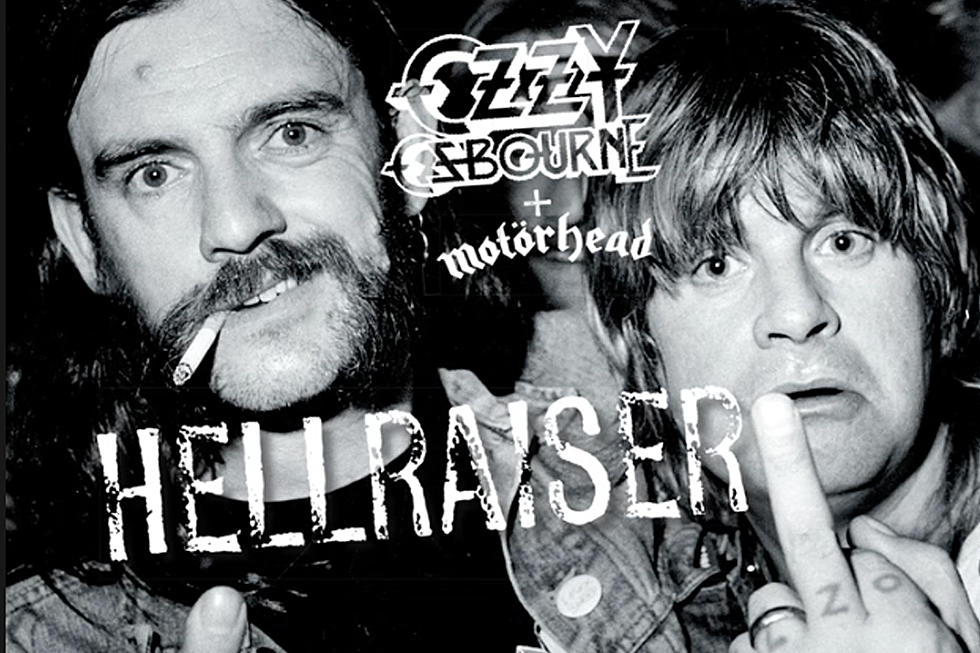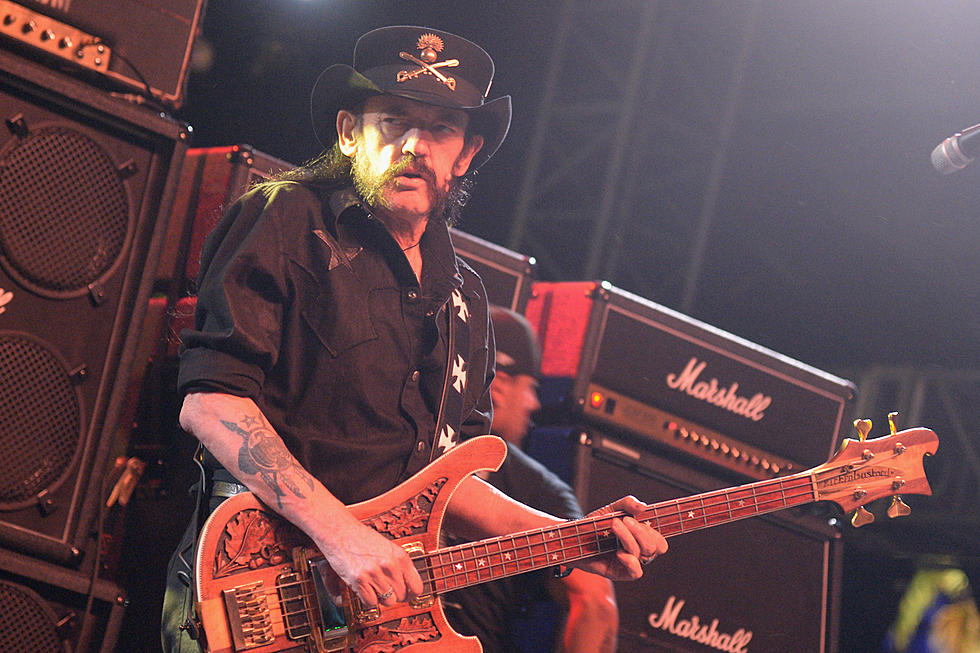
Did Lemmy Start Heavy Metal’s Love Affair with the Umlaut?
Umlauts and heavy metal go together like Jack and Coke — and we can thank Motörhead mastermind Lemmy Kilmister for teaching us that very important lesson.
Among the countless tributes published in the wake of Lemmy's passing Dec. 28 is an informative Rolling Stone piece that takes a look at the history of, as the headline puts it, how Lemmy and Motörhead "gave metal its umlaut." And while he was admittedly not the first musician to hit upon the idea of dropping those Germanic dots above a character or two in his band name, there's definitely an argument to be made in support of his exalted spot in umlaut history.
As Rolling Stone's report notes, Motörhead were beaten to the umlaut punch by a couple of artists, including the German prog band Amon Düül and, of course, prog-friendly metal vets Blue Öyster Cult. But while those acts had their own reasons for adopting the umlaut, Lemmy was arguably the first to make the move because, as he put it, "I thought it looked mean."
He was right, and while the metal umlaut never really turned into a trend, per se — any band sonically similar to Motörhead would have been guilty of the most obvious of ripoffs if they'd tried it — it's popped up on a number of noteworthy occasions, hovering above the logos of bands like Mötley Crüe, Queensrÿche, and Hüsker Dü. But where American audiences may have seen it as shorthand for darkness and aggression, listeners who understood the umlaut's phonetic purpose just saw pronunciation — occasionally producing unintentionally funny results.
"When we came up with the name, we didn’t even know what umlauts were," Mötley Crüe singer Vince Neil told Vanity Fair. "I can remember it like it was yesterday. We were drinking Löwenbräu, and when we decided to call ourselves Mötley Crüe, we put some umlauts in there because we thought it made us look European. We had no idea that it was a pronunciation thing. When we finally went to Germany, the crowds were chanting, 'Mutley Cruh! Mutley Cruh!' We couldn’t figure out why the f--- they were doing that."
By the '80s, the metal umlaut had become a bit of a joke, and was even adopted by the spoof band Spın̈al Tap because, as fictional singer David St. Hubbins explained, "It's like a pair of eyes. You're looking at the umlaut, and it's looking at you." These days, any band that uses an umlaut is probably doing it ironically.
Irony, however, is something Motörhead never had time for, and of all the bands with an umlauted name, theirs always felt the most natural. Now that he's gone, it might be time to retire it for good.
Motorhead's Lemmy Kilmister Dies
Motorhead Albums, Ranked Worst to Best
More From Ultimate Classic Rock









